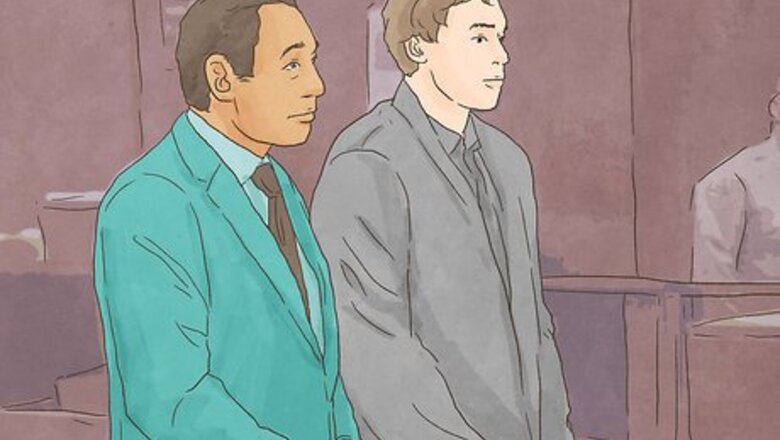
views
X
Research source
[2]
X
Research source
Appearing at Arraignment
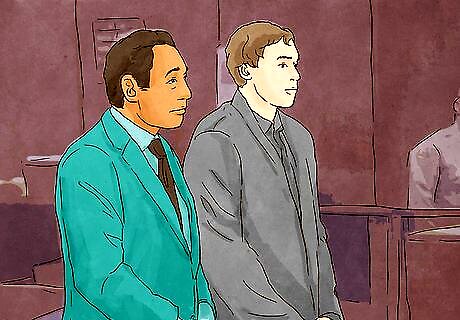
Stand and face the bench. Arraignment in the Navajo tribal court follows a procedure similar to that followed in state or federal court. You will be brought to a courtroom, typically with many other defendants, for your initial arraignment after being arrested. When you enter the courtroom, you will be given a copy of the criminal complaint against you by a court officer. When the judge calls your case name and number, you will move to the front of the courtroom, where a court officer will hand you a copy of the criminal complaint. You must provide to the judge your legal name, date of birth, tribal membership, and census or Social Security number.
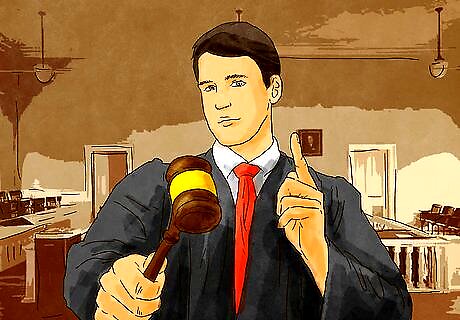
Listen to the judge. The judge will read the charges against you and explain the maximum possible penalty you could receive if found guilty. They will then explain the rights you have as a criminal defendant. The rights you have in Navajo courts are the same as those you have as a criminal defendant under the U.S. Constitution. The judge will explain to you that you have the right to remain silent, the right to an attorney, and the right to plead not guilty. Your right to be released on bail will be explained, along with circumstances that would not allow your release. The judge also will explain your trial rights, including that you have the right to a speedy and public trial by jury, and that you will be allowed an opportunity to confront and cross-examine all witnesses against you.
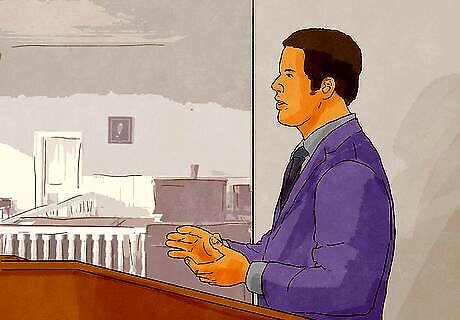
Enter your plea. After the judge has informed you of your rights, you must indicate that you understand those rights. The judge will make a determination that you are of sound mind and able to enter a plea. At your arraignment, you have the option of pleading guilty, not guilty, or no contest. Typically at this stage you want to plead not guilty. Pleading "not guilty" at arraignment gives you time to hire an attorney and assess the case against you. Although the prosecutor may offer you a plea deal at the time of arraignment, you are under no obligation to accept it. You don't even have to talk to them, and you probably shouldn't, to avoid saying something that could be used against you later on.
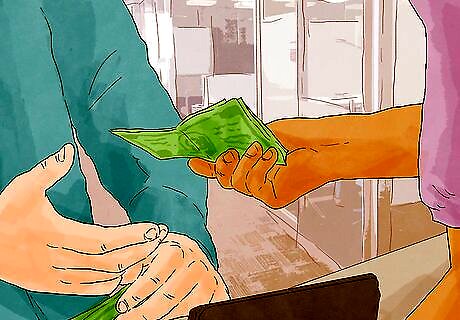
Make arrangements for bail. After you've plead not guilty, the judge will ask the prosecutor for their bail recommendation. The prosecutor will explain the amount of bail they believe is appropriate and the reasons for that conclusion. If the judge agrees with the prosecutor's recommendation, they'll set bail for that amount. The judge may disagree with the prosecutor's recommendation. You do have the right to speak against the recommendation or argue for a lower amount. To make bail in a Navajo Nation court, you (or a friend or family member) must make a bail agreement with a reliable member of the Navajo Nation that is approved by the court to make bail arrangements. Once the bail agreement is endorsed by the judge, you will be released. The bail agreement will be filed with the court, and the amount of the bail indicated in the agreement will be immediately due if you fail to show up for a court hearing or trial.
Hiring an Attorney

Find a list of licensed criminal defense attorneys. If your case is in a Navajo court, you must hire a criminal defense attorney who is a member of the Navajo Nation Bar Association. You may be represented by an attorney who has graduated from law school, or by a licensed lay advocate who has not graduated from law school but has been trained in the law. You can find licensed criminal defense attorneys by visiting the Navajo Nation Bar Association website at www.navajolaw.org. Look for attorneys licensed to practice in Navajo Nation courts and in Arizona courts, who have experience handling aggravated DUI cases. Hiring a lay advocate may be less expensive, but at the same time, you want to choose the person who is best able to represent you and get the outcome you want. Keep in mind that aggravated DUI is a felony. Arizona DUI laws are among the strictest in the country, and if convicted, you could spend years in jail and pay tens of thousands of dollars in fines and restitution.
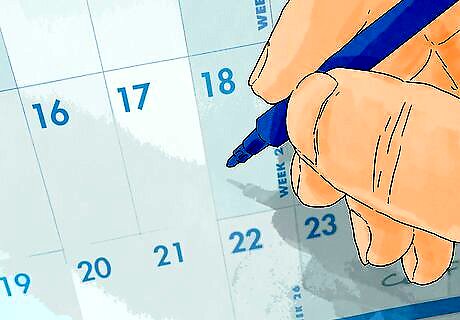
Schedule several initial consultations. There are more than 400 attorneys who are members of the Navajo Nation Bar Association. Out of those, you should be able to find at least two or three nearby who you can meet with. Most criminal defense attorneys provide free initial consultations, so this stage of your legal battle shouldn't cost you anything but time. Handling the matter quickly is important, so try to schedule your initial consultations within a week or so of your arraignment. If an attorney doesn't have time to meet with you within that period of time, they probably are too busy to take on your case and give it the time and attention it needs. Keep in mind that if you are still in jail, you typically will need a family member to make these initial consultations for you.

Ask each attorney lots of questions. Before your initial consultations, write down a list of questions that you want to ask each attorney. Especially with a free consultation, you can ensure that you're getting all the information that's important to you by asking detailed and specific questions. You want an attorney who knows the law and has experience defending clients who were charged with an aggravated DUI. Ask how many clients similar to you the attorney has represented, and what the outcomes of those cases were. You also want to find out if you'll feel comfortable working with the attorney, and get a good idea of what your attorney-client relationship will be like. Ask how they prefer to communicate with their clients, how often they communicate with clients, and how quickly they'll get back to you if you call or email with a question. You also need to come out of the initial consultation with a good understanding of what the attorney's fees will be and how much it will cost for them to represent you in your aggravated DUI. Ask them what billing method they use and how much it will cost to hire them for your case.
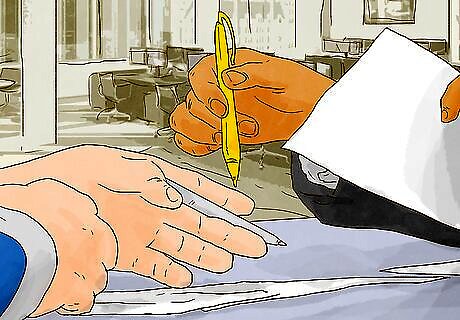
Sign a written retainer agreement. Before your chosen attorney contacts the prosecutor or does any work on your case, make sure you've signed a written retainer agreement with them. This agreement provides details about the services the attorney will provide you and what they will charge you. Ultimately, the attorney you've chosen is someone with whom you feel comfortable, and who you are confident will be able to get you the best possible outcome. While fees probably will be an important part of your decision, especially if you have a limited budget, keep in mind that your attorney could save you from potentially paying tens of thousands of dollars in fines and spending years in court. Have your attorney read the retainer agreement to you and explain it before you sign it. If there's anything you disagree with or don't understand, don't be afraid to speak up. Once you sign it, get a copy of it for your records in case you need to refer to it later.
Negotiating a Plea Bargain

Gather information about your case. Your attorney will request information and documents from the prosecutor so they can properly assess the evidence against you. They also will ask you to describe what happened when you were arrested. Navajo law provides similar rules regarding evidence as other American courts, so your attorney will assess the evidence against you to determine if any of it was collected in violation of your rights. The possibility that your rights were violated weighs in favor of a lighter sentence for you, and can be valuable during the plea bargaining process. However, even when the evidence is solid, you still may be able to plead down to a lower charge or a lighter sentence based on information about you and your background. Your attorney will gather additional information about your criminal record and your life history. If this is your first brush with the law, you may be able to plead down to a lesser charge.
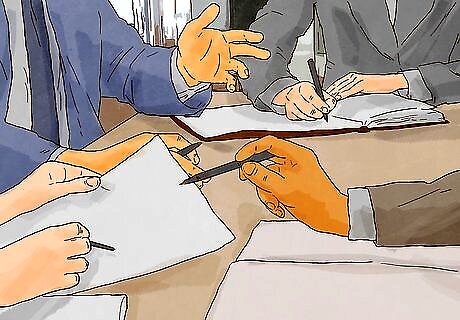
Find out what the prosecution is willing to offer. Typically the prosecution will have an immediate offer based on the information in the police report and the statement from the arresting officer. Since aggravated DUI is a felony charge, there is plenty of room to negotiate – particularly if this is your first offense. Keep in mind that the prosecutor may not be willing to negotiate with you if the incident that led to your arrest involved significant property damage or loss of life. However, you still may be able to negotiate regarding the sentence you will serve, even if you have to plead guilty to the felony charge. Showing remorse and a desire to seek treatment for alcohol abuse and perform community service within the Navajo community may help you get a better deal.
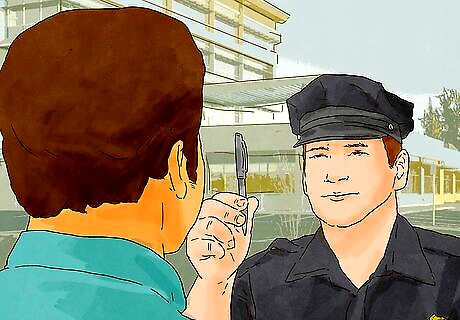
Identify defenses or mitigating circumstances. Based on the evidence and the circumstances surrounding your arrest, there may be factors that prevent you from being convicted for an aggravated DUI. For example, suppose the evidence of your intoxication is based on a field sobriety test. If you were taking prescription medications, or have a disability that prevents you from completing a field sobriety test satisfactorily, this would be a defense. Your attorney could present evidence of this to the prosecuting attorney while negotiating a plea bargain. This information might convince the prosecuting attorney to offer a better deal than they originally did based on the information in the police report. Since typically aggravated DUI charges stem from an auto accident, however, you'll have a more difficult time getting a good plea deal if there were injuries or loss of life involved. Significant property damage also can play a role in a prosecutor's unwillingness to allow you to plead guilty to a lesser charge.
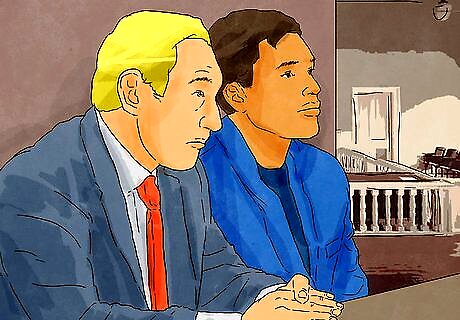
Be willing to plead guilty to a lesser charge. Typically, a plea bargain means that you appear in court and plead guilty to a lesser crime than the one for which you originally were charged. With a lesser charge, you might have more leeway. However, with an aggravated DUI, don't expect the prosecutor to allow you to plead guilty to something relatively minor like reckless driving. Provided there were no serious injuries or loss of life as a result of the incident that led to your charges, you should be able to plead guilty to a DUI. This still has significant consequences, but at least you won't have a felony on your record. Keep in mind you will be asked questions in court about specific facts involved in your case, and you will have to admit to them under oath. If taking a plea bargain means you must admit to things that you know you didn't do, you may want to consider taking your chances at trial – especially if you have a strong defense.
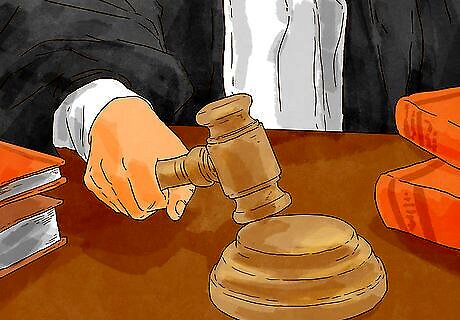
Enter your plea in court. Even if you and the prosecutor are in agreement on a plea bargain, it isn't final until it is presented in court and accepted by the judge assigned to your case. You must attend the hearing and answer the judge's questions. Typically, the prosecutor will speak first and present the plea bargain agreement to the judge. The judge will then ask you a number of questions. Even though you are represented by an attorney, your attorney cannot answer these questions for you. The judge will describe the crime to which you've agreed to plea guilty, and ask if you understand the crime and admit that you committed that crime. The judge then will ask you questions to determine for the record that you are pleading guilty voluntarily, and that you fully understand the agreement and accept the sentence.













Comments
0 comment